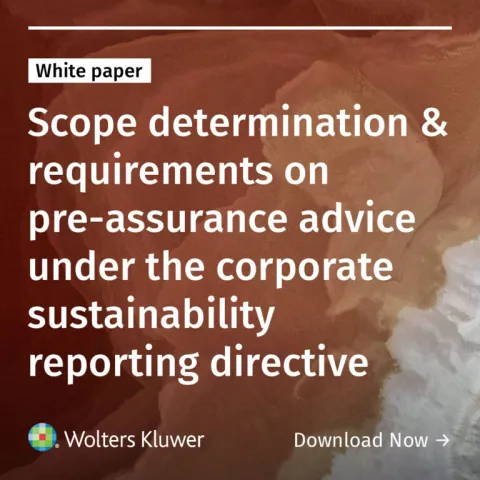What's the worst that could happen - Constitutional complaints against the EPO in Germany
January 18, 2020
Patent Attorneys like myself are not known for their love of excitement. For example, I like reading lists. One regrettably exciting item that appears to have slipped off the ‘things to look out for in 2020’ lists that I have seen is the outcome of the constitutional complaints against the EPO in Germany. The outcome of these complaints could have potentially explosive implications for patent practice in Europe and they have not received enough attention.
At present there, are five constitutional complaints relating to the European Patent Office (EPO) before the German Federal Constitutional Court (BVerfG), namely, 2 BvR 2480/10, 2 BvR 421/13, 2 BvR 756/16, 2 BvR 786/16, and, 2 BvR 561/18. At issues is the lack of sufficient legal remedies at the EPO against negative decisions of the Boards of Appeal. I believe there is a clear risk that the BVerfG will uphold at least some of the constitutional complaints relating to the EPO. Such an outcome would likely mean that the European Patent Convention (EPC) in its present form is incompatible with the German constitution.
My reasoning is as follows: according to these complaints there is a question (amongst others) on whether or not Articles 19(4) and 103(1) of the German constitution (i.e. the Basic Law of the Federal Republic of Germany) have been violated. Article 19(4) states that if any person’s rights are violated by a public authority, they have recourse to the courts. Article 103 deals with the right to a fair trial.
Is it possible to get ‘a fair trial’ from the Boards of Appeal? Do they have judicial independence?
Regrettably, there are already clear existing examples of EPO management interfering with the independence of the EPO’s Enlarged Board of Appeal (i.e. in the first and third Corcoran cases). Further, there is a strong prima facia argument that the Boards of Appeal cannot be independent of EPO management or impartial from the needs of the EPO as an organisation (especially where these conflict with an applicant’s rights) because members (i.e. the ‘judges’) of the Boards of Appeal can only have their position renewed if they reach performance criteria set solely by EPO management. Indeed, the Enlarged Board of Appeal itself declared in decision Art. 23 1/16 that judicial independence is not guaranteed within the framework of the EPC. In my opinion, this issue was not addressed in the recent reforms to the Boards of Appeal.
In addition, new Rules of Procedure of the Boards of Appeal (RPBA) came into force on January 1, 2020. There is already some concern that these rules are balanced towards ‘efficiency’ over quality (see the blog 'Happy New Year? Entry into force of the new Rules of Procedure of the Boards of Appeal' by Thorsten Bausch). I believe this focus on efficiency increases the risk of partial decisions as they open up the a risk that the needs of the EPO might become pre-eminent over the needs of applicants or third parties.
If the European Patent Convention (EPC) in its present form is incompatible with the German constitution it would also likely mean that the EPC is incompatible with the EU Charter on Fundamental Rights.
According to Article 47 of this charter, everyone is entitled to a fair and public hearing within a reasonable time by an independent and impartial tribunal previously established by law. Similar provisions exist in the European Convention on Human Rights (ECHR) and EU law has consistently followed the principles established by the European Court of Human Rights’ (ECtHR’s) case law regarding the two required aspects of impartiality: subjective and objective impartiality. Independence is considered a prerequisite of impartiality and adequate rules are required with respect to the composition of a body and the status of its members.
So given this risk – what is the likely remedy?
As noted in by Vissel (GRUR Int. 2019, 25) it is instructive to note the submissions of the Federal Republic of Germany during the Travaux Préparatoires of the EPC (emphasis added):
“The delegation of the Federal Republic of Germany opposed this request [to delete para. (b) of Art. 135]. It pointed out that the application of a national procedure should be possible not only in cases in which the applicant suffered a loss of rights as a result of the omission of an act but also where the European Patent Office had given a negative decision. It was in precisely these cases that there was a constitutional problem in the Federal Republic of Germany. The Basic Law required that every administrative act should be capable of being examined by a court. The Boards of Appeal of the European Patent Office, although similar to courts of law, were not in fact courts proper so that the possibility of recourse to a German Court had to be maintained. It should, however, be borne in mind that the Federal Republic did not at present intend to avail itself of the option available under para. 1(b). However, even if this option were applied, there would be little danger of any delay in the procedure since it was unlikely that proceedings would be initiated before the German patent authorities and the German Court after the European procedure had been concluded.”
Hence, the provision of Article 135(1)(b) EPC was drafted for a situation in which the Boards of Appeal of the EPO could no longer be seen as independent courts.
This was a situation that had occurred within the German Patent Office when appeals against decisions of the Office were conducted internally. There was a constitutional complaint against the internal appeals of the German Patent Office because of a lack of sufficient legal remedies at the German Patent Office. This complaint was upheld and it ultimately lead to the establishment of the German Federal Patent Court.
Article 135(1)(b) EPC reads as follows:
(1) The central industrial property office of a designated Contracting State shall, at the request of the applicant for or proprietor of a European patent, apply the procedure for the grant of a national patent in the following circumstances:
…
(b) in such other cases as are provided for by the national law, in which the European patent application is refused or withdrawn or deemed to be withdrawn, or the European patent is revoked under this Convention.
If the BVerfG does decide to uphold the constitutional complaints relating to the EPO, there is also a risk that the only remedy that can be selected is to convert the EP applications in questions into German patent applications in line with Article 135(1)(b) EPC. This would be within the jurisdiction of the BVerfG and would at least protect applicants from partial decisions on the German portion of an EP application.
However, it would not be a happy outcome.
If this is the outcome it would result in a process where an applicant could apply for a European patent application which would be examined by an Examining Division of the EPO. If it is refused, the decision can be appealed to a Board of Appeal of the EPO. If e.g. the Board of Appeal finds against the applicant and application is refused, the applicant could then convert the refused European application into a German patent application. The German patent application would then go through another round of examination by an Examining Section of the German PTO. If refused, the decision could be appealed to a Board of Appeal of the German Federal Patent Court. In addition, if the European proceedings have resulted in decisions based on formal objections (clarity, added matter, late filing of evidence, late arguments, etc.) national courts may have to consider these cases de novo.
This seems like a long, convoluted and costly procedure because it is.
Further, if this route opens up in Germany it is entirely possible that it can be opened up in other EU countries and EPC countries where one has the right to a fair hearing. As such, the rejection of a European application could result in a bundle of national applications.
Further, after a revocation by an Opposition Division or Board of Appeal of the EPO, the owner could convert the (revoked) European patent into German patent. This would result in opposition procedure being useless because a successful opposition would potentially result in a bundle of national rights that would each need to be opposed in turn.
This would frankly be a mess - such a long and convoluted examination phase and the conversion of a revoked European Patent into a national patent clearly reduces legal certainty for all parties.
This mess can be avoided by a further revision of the EPC clearly separating the powers of the European Patent Office (administration), the Boards of Appeal (judiciary) and the Administrative Council (legislation).
Ideally, the impartiality of the Boards of Appeal should never have been put under scrutiny by the management of the EPO and, when this happened, a conference should have been organised to revise the EPC.
Now there is a risk that we may be facing a revision of the EPC as a result of the chaos which may soon be upon us. I hope I’m wrong – but it’s always wise to hope for the best and prepare for the worst.
You may also like














MaxDrei
Richard, your "worst case" horrifies me. Thanks for doing the work of researching it, writing it and posting it. It reads so persuasively that one is left with a renewed feeling of anger with the EPO past-President and his enablers, that their contrived vendetta with the judges of the Boards of Appeal (to clear the way for a Paris-based UPC) has brought us to the present shambolic situation. Your piece leaves me with the feeling that your worst case is a real possibility. Attention other readers. Can you reassure me that Richard's piece to be regarded as scare-mongering? Or is he right and, if so, what can be done, in reality, to save the situation? I mean, getting established at the European Patent Organisation a true "separation of powers" (legislative branch, judicative and administrative) would be a magnificent achievement. Who amongst us thinks the EPO's Administrative Council has got what it would take, to make that a reality?
Attentive Observer
In the wake of the upheaval of the complaint against the UPC before the German Federal Constitutional Court (FGCC), the complaints about the independence of the BA were send to the background. It is good to draw the attention to this problem. I would consider it reasonable if the FGCC would first deal with the complaints about the independence of the BA before deciding upon the UPC. After all, the patent to be vetted by the UPC is a patent granted by the EPO, and those complaints are much older. With the actions of the former president of the EPO, by denying a member of the BA access to the building, he ignored completely the separation of powers. By requesting the EBA to rubber stamp its decision and that of the AC, he wanted to take direct influence on the outcome of a case before the EBA. His successor, goes along the same line. He bluntly wants the EBA to amend its case law about Art 53, b) without wanting to amend the latter. The Chairman of the BA is only independent on the paper as he only can have the functions and powers delegated to him by the President of the European Patent Office. The President of the European Patent Office may provide the President of the Boards of Appeal with the necessary resources, as set out in the adopted budget, but the final responsibility for the budget lies with the president of the EPO. I understand something different under independence. Before all the changes to the BA, they were in a position to decide autonomously their rules of procedure. Now they are heard, but the final decision to propose the RPBA lies with a Board of Appeal Committee comprising members of the AC and external judges. In this respect the independence of the BA has also been curtailed. If a reappointment of a member depends on some evaluation of the member's or Chairman's performance, this is also not promoting the independence of the BA. At least the criterion for evaluation of the performance should have been made public. There is also an interesting case law decided by the same Chamber of the FGCC. Judges can be named for a limited period, but under two clear conditions: they have to be civil servants for a life time, and they cannot be reappointed. All things which are not the case for quite a number of BA members, unless they are former examiners with a life time contract or detached by the judiciary of their country of origin. And all have to be reappointed. If the FGCC is not ignoring its own case law, this could also be an interesting point to discuss. Techrigts or Zoobab: FINGERS OFF!! Directly or indirectly. No cuting into pieces and publishing under one's own name!! At the least respect other people's IP
One of those...
Article 4a EPC2000? A diplomatic conference may not have been necessary yet, but a step below should have happened. Staff at the EPO did ask management why management did not call for a conference of ministers, and the answer staff got was typical. Management feared uncomfortable questions regarding staff policies, and that management would not be able to set the points of discussions. Yes, management would have control over the initially set topics of discussions. But politicians do have a knack for changing the preliminary topics of discussions, and decide completely other stuff, thus denying EPO management control over the discussions. And the previous head of the European Patent Granting Authority did not want to risk to open a can of worms, and preferred to be in open contradiction to the EPC he was being paid to follow and uphold. @MaxDrei: the AC does not have the powers to amend the EPC to achieve that, nor are they interested in following the EPC for a long term solution to these problems. They acknowledged that the cases do have merit, and enhanced the perception of independence, but did follow the management's proposal and introduced a limited separate budget for DG3, wich gives the EPO president unprecedented control over the boards of appeal.
Attentive Observer
In 2004/2005 there was a proposal emanating from DG5 (which was still managed and not administered as it is presently) attempting to give the BA much more independence. It even had the support of the then president of the EPO. The BA will be truly independent the day on which they will have their own budget and all the corresponding prerogatives. All the reforms introduced in R12a to 12d should be reversed. That the EPO administration could help the BA with purely administrative tasks is a possibility, but only if the EPO administration executes the instructions of the BA without questioning those. The right to present members of the BA to the AC should be removed from the President of the EPO! This is the reason why the backlog of the BA kept rising between 2010 and 2018. People in DG5 realised in 2004/2005 that the question of independence was of utmost importance and it was clear that one day the question would come up. The Administrative Council refused to discuss the paper and left the situation as it was until a famous French civil(?) servant(sic) took over, with all the consequences we know. He took offence of the interlocutory decision in R19/12, and we all know what followed. Not even the perception of independence increased as he cynically claimed. The AC rubber stamped all the proposals brought forward by the then tenant of the 10th floor. The AC accepted the transfer of the BA to Haar, and this is not for free, and also accepted recently to invest lots of Mio € in a rented building when some buildings owned by the EPO are empty! This is simply to say that you cannot count on the AC to change anything. The tail is still wagging the dog! The cooperation budget is an excellent tool to bring about the desired result. And the new president has put the right person in charge! The only thing the AC refused was to pay the fine imposed on the present president after the famous episode at the Munich airport. One can wonder what brought its members to have the guts to displease the president. It was probably difficult to justify such a payment vis-à-vis their national authorities. But more than that is probably not to be expected. Only external pressure, for instance from a national court like the FGCC could bring change into the matter. Let’s hope that this happens. It would be for the good of the EPO. But do not recon on the AC to change anything! Techrigts and Zoobab: FINGERS OFF!! Directly or indirectly. No cutting into pieces and publishing under one’s own name!! At the least respect other people’s IP